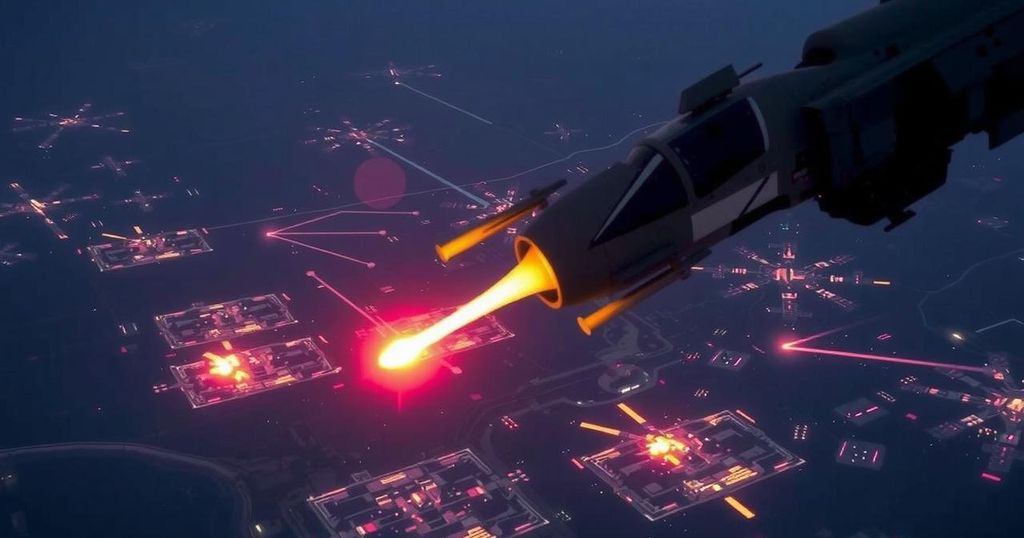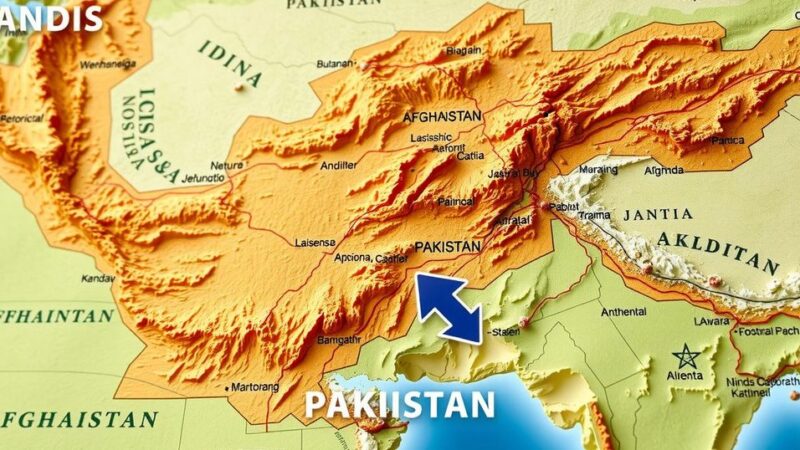The fall of Bashar al-Assad’s regime has led to celebrations in Syria, prompting Israeli airstrikes and condemnation from the Arab League. Turkey aims to establish diplomatic relations and an inclusive government in Syria while addressing Kurdish militant groups. In a notable event, a detained American citizen was successfully transferred to US forces after being rescued by rebel factions.
The Israeli military continues to carry out airstrikes in Syria, particularly near the capital, Damascus, amid widespread celebrations among Syrians regarding the recent downfall of President Bashar al-Assad’s regime. In response to these developments, the Arab League has publicly condemned Israel’s actions in seizing Syrian territory and is advocating for a special session of the UN Security Council to address the situation.
Furthermore, Turkish Foreign Minister Hakan Fidan announced that the Turkish embassy in Damascus will resume operations, with a diplomatic team heading to the city to promote the establishment of an inclusive Syrian government. This initiative aims to foster a terror-free environment in Syria while ensuring the protection of minorities. Fidan emphasized Turkey’s determination to eliminate the People’s Protection Units (YPG), which Ankara considers a terrorist organization, despite their role in the US-led coalition against the Islamic State (ISIL).
Celebrations erupted across Syria on the first Friday following Assad’s regime collapse, with thousands traveling to the Umayyad Mosque in Damascus. Reports indicate that the new Syrian authorities successfully transferred a detained American citizen, Timmerman, to US forces on Friday, after he was rescued by rebel factions from a Damascus prison. This series of events marks a significant turning point in Syria’s political landscape as various factions seek to reshape governance in the post-Assad era.
The ongoing conflict in Syria has seen numerous shifts in power dynamics since the civil war’s commencement in 2011. The overthrow of long-time President Bashar al-Assad marks a critical juncture in this protracted struggle, prompting reactions from international actors, including Israel and Turkey. Israel’s airstrikes are part of its continued efforts to counter perceived threats from Iranian forces and affiliated groups operating within Syria. Simultaneously, the Turkish government seeks to influence the formation of a new Syrian political landscape, emphasizing its concerns over Kurdish militant organizations that it deems terrorist threats.
The latest developments in Syria following the fall of President Assad’s regime unveil a complex interplay of international interests and local aspirations. With Israeli airstrikes provoking regional responses and Turkey positioning itself as a facilitator of new governance, the landscape of Syrian politics is rapidly evolving. The repercussions of these actions could reshape the future of Syrian sovereignty and regional stability, highlighting the need for diplomatic engagement at a global level.
Original Source: www.aljazeera.com







